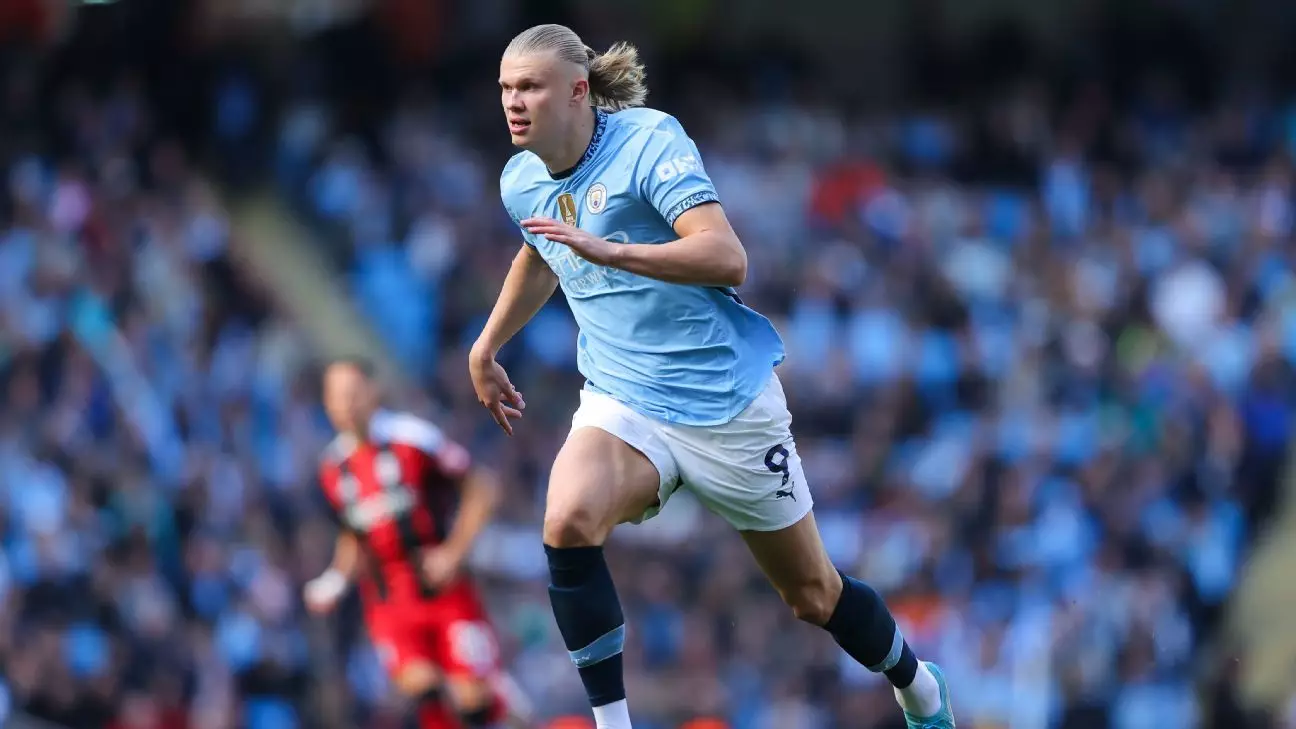In the bustling world of football, transfer windows often become a whirlwind of speculation and expectation. However, Barcelona’s approach this season, as articulated by sporting director Deco, reflects a prudent and focused strategy rather than one of extravagant signings. With the promise of maintaining their recipe for success under Hansi Flick, the club is leaning towards stability over the flashiness of marquee signings.
Deco’s comments suggest that for Barcelona, the immediate future holds higher priority than the pursuit of new talents. Currently leading LaLiga and on course for a strong run in the Champions League, the club is not inclined to pursue significant signings. Deco explicitly downplayed potential moves for high-profile players like Manchester City’s Erling Haaland and Sporting CP’s Viktor Gyökeres, stating that acquiring a traditional number nine is not on their agenda. This signals a strategic, measured approach focused on current resources rather than chasing dreams of footballing superstars who might not fit the club’s immediate goals.
“It’s not a priority because we have to focus on this season,” Deco remarked, indicating a desire to promote stability and cohesion for the remainder of the ongoing campaign. This mindset also points to a growing confidence in the squad already at Flick’s disposal, hinting that an overhaul is neither necessary nor effective.
One of the most critical aspects of Deco’s comments revolves around the importance of their star player, Robert Lewandowski. Currently leading the LaLiga scoring charts, Lewandowski’s performance is pivotal to Barcelona’s success. At 36, he is not only a seasoned goal scorer but also a proven leader within the team. Deco highlighted the unique challenges of finding a player of Lewandowski’s caliber, asserting that “there are not so many of this level available.” This reinforces the idea that Barcelona is committed to maximizing Lewandowski’s contributions rather than seeking his replacement at this time.
The commitment to leveraging their existing talent suggests a deeper understanding of squad development; it could foster a collaborative environment where established players feel valued and younger talent has the opportunity to flourish without immediate pressure.
Reassessing Transfer Targets
Deco’s stance on potential signings also sheds light on the club’s changing dynamics regarding recruitment strategy. The sporting director elaborated on Barcelona’s previously expressed interest in Spanish forward Nico Williams. After Williams opted to remain with Athletic Club, Deco emphasized a clear resolve to move forward without lingering attachments: “The moment the player shows that he is not interested in coming, we don’t talk about it anymore.”
This decisiveness reflects an adaptive strategy—one willing to pivot and reassess priorities based on player commitments and availability. The acquisition of Dani Olmo reinforces this proactive approach, filling a gap that had been deemed critical over seeking desired, yet unavailable, talents.
Defense and Goalkeeping: A Stable Foundation
In addressing defensive structures, Deco ensured fans that the club is not overly concerned about its backline. The recent acquisition of Wojciech Szczęsny to replace the injured Marc-André ter Stegen suggests Barcelona’s commitment to maintaining quality even amid injuries. Deco affirmed that ter Stegen, being only 32, still has a promising career ahead, which means the focus will be on his recovery rather than hastily bringing in new talent to compete against him.
Rumors regarding a potential move for FC Porto goalkeeper Diogo Costa were brushed aside, with Deco stating that they are not actively seeking new signings. This adherence to current roster management reflects a commitment to nurturing player development over the impulse of fluctuating market value—a philosophy that, if executed correctly, could pave the way for long-term sustainability.
Barcelona’s approach under Deco’s candid insights points to a season centered around optimization rather than upheaval. By focusing on the players who are already part of the squad and reinforcing a culture of stability, the club aims to navigate the competitive landscape of LaLiga and European football with confidence. The overarching message is simple yet poignant: success comes from cultivating and maximizing the existing talent rather than chasing elusive new signings. Stability in strategy may lead to enviable consistency on the pitch, a philosophy that very well could define Barcelona’s future success.

Leave a Reply